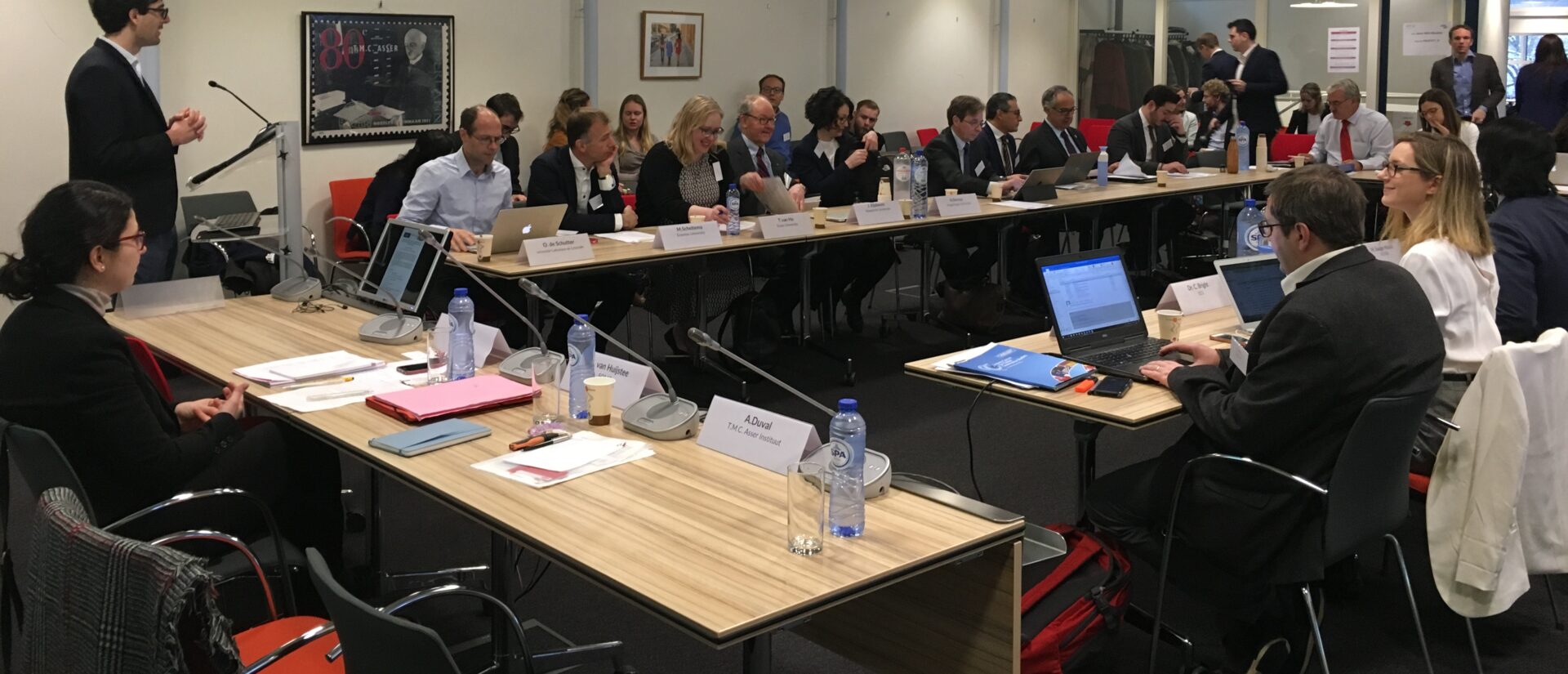
FIDH, SOMO and Asser Institute organise expert meeting on UN Treaty on Business and Human Rights
On the 1st of February 2019, FIDH, SOMO and the Asser Institute have organised an expert meeting in The Hague, with the aim to contribute to the ongoing discussions on the draft of a ‘legally binding instrument to regulate (in international human rights law) the activities of transnational corporations and other business enterprises’.
Dutch civil society organisations sound the alarm: Dutch Minister must save human rights treaty
The objective of this meeting was to bring together academic experts and a selected audience to reflect on the provisions of the so-called ‘Zero Draft’ of the treaty, and feed civil society organisations and state delegations with concrete proposals and contributions for the further improvement of the treaty (see the agenda for attending experts).
To do so more effectively, the discussion focussed on two specific themes in the Zero Draft: human rights due diligence (HRDD) and civil liability. HRDD is currently enshrined in Article 9 (Prevention) while civil liability is dealt with under Article 10 (Legal Liability) of the Zero Draft. These issues were selected due to their particular salience for the business and human rights discussion.
International law lags behind economic reality
Since the adoption of the United Nations Guiding Principles on Business and Human Rights (UNGPs) in 2011, HRDD has become a fundamental element of responsible business conduct and of a State’s duty to protect human rights from corporate abuses. It is therefore important to assess how current provisions about HRDD (in the non-binding UNGP’s) will function in a legally binding treaty and what the requirements are for implementation of HRDD by business throughout the world.
Another much-discussed issue in the business human rights context is the question of access to remedy in national courts for rights-holders, especially under civil law. Improving access to civil remedy for alleged victims of human rights violations is essential to ensure effective prevention and redress. Consequently, FIDH, SOMO and the Asser Institute considered it crucial to discuss the place given to civil liability in the draft treaty, particularly in connection with the article on HRDD.
Based on the exchanges and reflections from this meeting, FIDH and SOMO have sent a contribution to the Chair of the Intergovernmental Working Group (IGWG). This body is charged with the elaboration of the legally binding treaty for business and human rights.
Do you need more information?
-

Lydia de Leeuw
Researcher
Partners
-
T.M.C. Asser Instituut
The T.M.C. Asser Instituut is a foundation established in 1965 as an inter-university institute for international law in The Hague. The institute is an internationally renowned centre of expertise in the fields of public international law, private international law, and European law.







